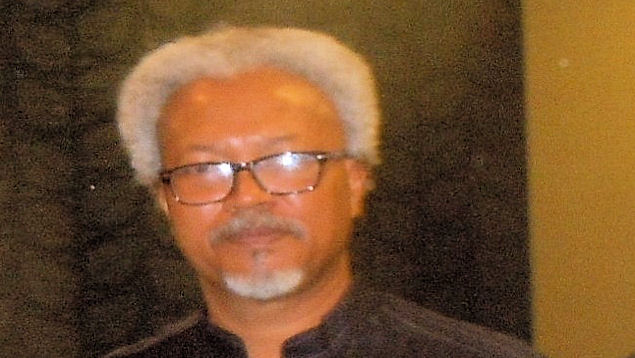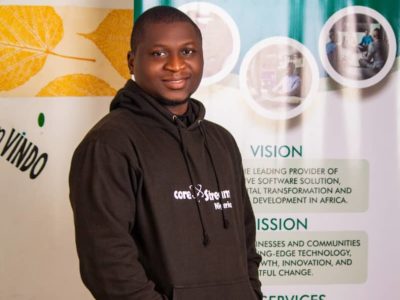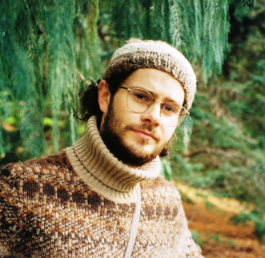The Director General of the National Information Technology Development Agency, Mr. Peter Jack spoke to the press at the just ended Gitex Technology Week in Dubai, UAE where Nigeria featured as the Official Country Partner. He spoke on Nigeria’s participation, the local IT industry and the prospect of getting investors to Nigeria. IT Edge News, MARTIN EKPEKE, was there and captured the interaction.
What level of partnership does Nigeria have with Gitex? We selected Gitex to showcase investment opportunities in Nigeria, particularly in the ICT sector. We were particularly interested in the fact that Gitex is normally well attended and this year, there are over 60 countries here and there are over 3,700 companies exhibiting. It is a very large event with more than 154, 000 attending last year; Nigeria is the official country partner this year. We expect to showcase ICT investment opportunities in Nigeria to the rest of the world. Most of us here are aware that Dubai is a shining example of what technology can do. Over the last few days, we have received a lot of interests. Most of the missions of various countries are getting in touch with us and will be part of our investment forum and dinner that will hold tomorrow here in Dubai.
Can we say Nigeria is safe for the kind of investment we are looking for? You know a lot of effort is in place by government to ensure there is security. In any case, if you recall the aspect of healthcare (Ebola), Nigeria is the only country that has successfully contained it. Our standard is being used by various advanced countries; Nigeria is being referenced as a country that has handled Ebola successfully. However, when it comes to national security, there is a lot of regional effort; recently our president was in touch with our neighboring West African countries, so that together there can be consensus effort to ensure security on our borders.
How do you think government can run more efficiently using ICT, especially our locally made IT solutions? There is a sister agency known as Galaxy Backbone that NITDA seeded some of our mandate to in order to ensure we don’t carry more than we can take. What we have done is to slowly and steadily reduce our mandate by creating a sub-agency like Galaxy which is now responsible for infrastructures. Also, about 10 years ago we created national e-government strategy to take responsibility in ensuring a public/private partnership approach in the deployment of E-health, E-agriculture, E-education and so on. You can see some of our success stories here in Dubai, you can see Sidmach, Cinferos, PFS, Data Sciences and lots of them with solutions that are tested. These are home based IT companies delivering quality services for our country. So, we are using technology to ensure performance, there are many examples of such solutions that we are very proud of. Even recently, the NIMC launched its national identity solutions at the presidency.
What about E-security, using technology to protect our country against threats from within and outside? I will like to talk about that in two dimensions. There is the physical dimension and the electronic dimension. In the electronic dimension, we have the NigComsat that is responsible for our satellite communication, and indeed there is a substantial bandwidth working with the Nigeria Internet Exchange and the Ministry of Communication Technology. There would be a level of protection across the border in terms of coverage of the country. In terms of physical security, you know very well that we are at threat, but the government effort recently is ensuring the containment of that threat from a physical perspective using the country’s armed forces.
Can we have an insight into Nigerian companies participating at this year’s Gitex? We have about 19 companies. But some of them who showed interest have not arrived.
What is NITDA doing to increase local ICT participation? Very recently, together with the Ministry of Communication Technology, we launched the Local Content Guidelines. We have also established office for local content in ICT, that office is about to be opened formally to the public. If you have noticed recently in the media, we have indicated that people should be careful how they patronize only foreign made products, goods and services in the ICT sector. We have indicated that there is a commitment by government to support made-in-Nigeria products. That is why we deliberately made sure that most of the people you see here are actually Nigerian software developers and hardware vendors.
What percentage of FDIs are we looking at from Gitex? What is happening is that we are getting responses from the various missions, the Mission of the Emirates, the Egyptian Mission and quite a number of others. We are getting interests from various countries and they are going to be part of us at the Investment Forum, where we will tell the world what Nigeria has.
What are the plans to follow up with the students from Nigeria that have come to showcase their solutions? Those students were part of a competition. Gitex organized a competition and I can proudly announce to you that two Nigerian teams won and that is why they are here. There is also a Nigerian from one of the teams from another country, so you can see Nigeria has a substantial presence here. But what we are trying to do to encourage these startups is we have established partnership with the Ministry of Communication Technology and established what we call Information Development Entrepreneur Accelerator iDEA hub in Lagos and Calabar. We also established information development centre in Lekki Phase 1, which is not far from where we are relocating our Lagos regional office to. Our Lagos regional office will collocate the centre. All of these initiatives are intended to take care of the entire software innovation ecosystem, which starts from the idea to the market. We have made provision to ensure these startups are exposed to the various opportunities, whereby they can get mentorship, support, coaching to take their products to that level of quality that can attract Angel Investors. We also have an iDEA hub in Tinapa where we are partnering with the Cross Rivers State government to establish the Knowledge City. The grand project is the Lagos Smart City, it is an initiative at the Lekki free trade zone. That project is going to incorporate a typical smart city where you have the innovation hub and the internet city area. There is also the Abuja Technology Village. Between the Lagos Smart City and the Abuja Technology Village, we are planning to host Computer and Allied Product Developer Association of Nigeria (CAPDAN), what we are doing with them is to put them into two places, one in Ikeja and the one in Lekki. The GSM and Computer Village in Abuja recently faced some challenges. I personally went there to assure them we will relocate them to Abuja Technology Village. We have made progress with the Abuja Enterprise Agency, looking at how we can take some space in the Abuja Technology Village to relocate the Computer and GSM solutions providers to that area so that they can be more productive.
What are the hindrances in doing all these things? We have always looked at challenges like funding as opportunities because we are not relying strictly on government resources. Our primary strategy is a multi stakeholder partnership in which everybody wins. The international community development partners have severally been approaching us, particularly like the Rockefeller Foundation. They are trying to see how we can collocate their job creation opportunity within our rural information technology centre. We are saying even when it appears to be some challenges, we are mitigating these challenges by engaging as many development partners as possible, so that where we have limited resources, we take advantage of the mandate and the intervention plan of these international agencies.































